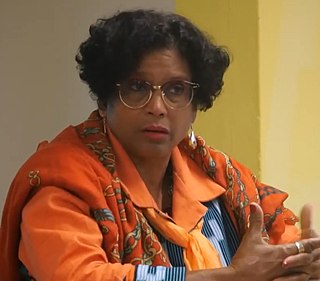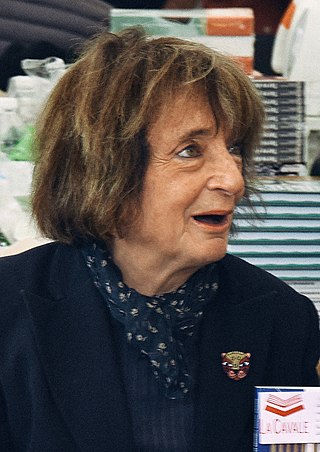Biography
His main research field has been the phenomenon of societal "great fears" for both scapegoat characters (like "serial killers") and collective actions viewed as generating disasters.
He interprets these fears as "symptomatic" positions, that is to say, which are formed in place of explicit political positions, when reasonable conversation is impossible on crucial issues. The subjects of fear rarely relate directly to a real problem at stake. For example, the serial killer, as a myth, represented, in the United States, the difficulty of finding a balance between legal system and individual freedom: both having the potential of turning into monstrosity. Another example: the fear of "mad cow" disease (due to industrial feeding of cattle) seemed to represent a more fundamental issue: artificiality of our lifestyles and our interventions on life forms and their natural intermingling. The fear of climate change reflects the broader problem of the difficulty to pass from a world composed of human entities in conflict to a world where humanity acts "as one man." The most blatant and more constant symptomatic transfer is the hatred/fear of the "Jewish conspirator" who appears to embody a rejection on the others of the guilt associated in Christian society, to the act of making God equal to Man (and therefore to symbolically "kill" God or the Father). Indeed, no one can explain the recurrence of this hatred/fear without analysing the regular trait it represents within Western civilization, as if "mechanically".
In the background of these phenomena, which can rightly be named "pathologies", Denis Duclos (who worked with the British anthropologist Mary Douglas) built a theory of cultural fields, of their conversational structure (counterpoint to the tendency to domination observed by Pierre Bourdieu). He considers in particular the emergence of "positional" clusters which tend to directly organize themselves into a global conversation, gradually moving away from their traditional shells: religious, national, international and civilizational fields. For example, it appears (supported by surveys) that the European field is largely centered by the question of law (as an eventually quantifiable system of relations): The Anglo-Saxon position tends to equate law and society, while the "latin" response anchors the law in civic local conditions, whereas another position (German) is based on the necessary correspondence between law and a wide community spirit. This conversation is a special case of a pluralization of positions to be found at other levels, but also, ultimately, in the basic attitudes of all cultures (as shown by P. Descola according to Claude Lévi-Strauss.) On the assumption that, in a sense (related to the fact that homo sapiens is speaking) there has potentially only ever been one human cultural field, Denis Duclos questions History as a confluence of separating and unifying trends. He raises the problem of the pluralistic frame which, in a “society-world”, will necessarily supersede existing intermediate forms, too deeply embedded into outdated and self-centered organizations.
Duclos has also published in the Revue de Mauss, a French anti-utilitarian journal.

Simha Arom is a French-Israeli ethnomusicologist who is recognized as a world expert on the music of central Africa, especially that of the Central African Republic. His books include African Polyphony and Polyrhythm: Musical Structure and Methodology (1991) ISBN 0-521-24160-X. He also made some historical field recordings of the Aka Pygmy music.

Joseph-François Kremer is a French composer, conductor, cellist and musicologist.

The National Forests Office, or ONF, is a Government of France agency that manages the state forests, city forests and biological reserves. ONF is based in Paris.
Olivier Fillieule is a political scientist and sociologist. Fillieule serves as Senior Researcher at CNRS, full-time Professor at the University of Lausanne, and Director of the Institute for Political and International Studies (IEPI).
Jean-Marie Brohm is a French sociologist, anthropologist and philosopher. Professor of sociology at the University of Montpellier III, he was also the founder of the journal Quel Corps ?, member of the editorial staff of the monthly Répertoire and is actually director of the journal Prétentaine. Brohm has written many books and is the leading proponent of the radical critique of sport in France.

Olivella miliola is a species of small sea snail, marine gastropod mollusk in the subfamily Olivellinae, in the family Olividae, the olives. Species in the genus Olivella are commonly called dwarf olives.
Josepha Laroche is a French professor of political science, specializing in international relations. She is professor at the University of Paris 1 Pantheon-Sorbonne, where she is Director of the master's program of research in international relations, and is also researcher at the UMR 201 Développement et sociétés. She was also Institut d'Études Politiques de Paris from 2004 to 2009.
Danièle Hervieu-Léger is a French sociologist specialized in the sociology of religion.

Henri Temple, is a French professor, lawyer, philosopher and politician.

Juliette Sméralda is a French Afro-descendant sociologist.

Monique Pinçon-Charlot is a French sociologist, research director at the French National Centre for Scientific Research (CNRS) until 2007, year of her retiring, attached to the Research Institute on Contemporary Societies/ l'Institut de recherche sur les sociétés contemporaines (IRESCO).

Danièle Bourcier is a French lawyer and essayist, who has contributed to the emergence of a new discipline in France: Law, Computing and linguistics.
Pierre Kipré is a historian and writer from Ivory Coast. He is a former student of the École normale supérieure in Abidjan.

Sofiane Bouhdiba is a Tunisian demographer, born on 12 April 1968. He is Professor of Demography in the department of Sociology in the University of Tunis. He has taught in many universities in Europe, Africa and the United States, and has participated in a great number of international conferences, with a focus on mortality and morbidity. As an international consultant to the United Nations, he had the opportunity to observe closely the history of the fight against major diseases in the world. He has also participated in numerous scientific and humanitarian missions in sub-Saharan Africa. Professor Sofiane Bouhdiba is well-known for the realism of his recommendations, and has been appointed as an expert in Demography before the Tunisian Parliament.
Denis-Constant Martin is a French scholar.
COUPERIN is an academic consortium in France. Formed in 1999, it includes more than 250 universities, research organizations, Grandes écoles (schools), COMUE, and others. The consortium negotiates with publishers the prices and conditions of access to scientific publications and other digital resources for the benefit of its members. It promotes open science, particularly with regard to scientific publications, both nationally and internationally. It is headquartered in Paris.
Étienne Taillemite was a French historian and archivist.

Elsa Dorlin is a French philosopher and professor in the department of political science at University of Paris 8 Vincennes/St. Dénis.
Pierre Chouard was a French botanist, specialising in plant physiology.
This page is based on this
Wikipedia article Text is available under the
CC BY-SA 4.0 license; additional terms may apply.
Images, videos and audio are available under their respective licenses.









